Francina’s Stage 2B Breast Cancer Story
Interviewed by: Taylor Scheib
Edited by: Chris Sanchez
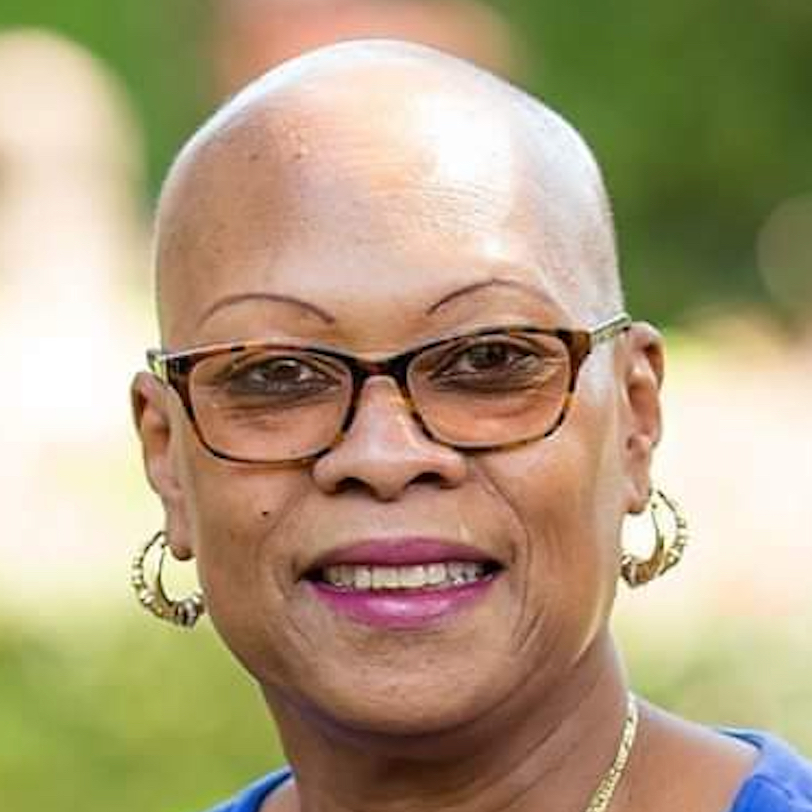
Francina is a breast cancer survivor, a mother of 2, and a grandmother of 4. She enjoys traveling, going on cruises, and spending time with family and friends. Francina is an advocate for cancer awareness, working with the American Cancer Society Cancer Action Network and the Sister to Sister Alliance to educate communities on cancer prevention and the importance of early detection.
Francina discovered her breast cancer during a routine mammogram. After further tests, she was informed that the mass was cancerous. Despite the shock, she remained calm and turned to her faith, vowing to use her journey to bring glory to God. Her treatment journey included two surgeries, chemotherapy, and radiation, and thanks to biomarker testing, she received a treatment tailored to her specific cancer type. After going through these challenges, she is now cancer-free, and has been so for 6 and a half years.
Throughout her journey, Francina relied on her faith, support from family, and her church community. She credits her strength and positive mindset for helping her fight cancer, as well as the help of a close friend who accompanied her through treatment and recovery. She emphasizes the importance of self-breast exams, early detection, and knowing one’s family medical history.
- Name: Francina B.
- Diagnosis:
- Breast Cancer
- Staging:
- Stage 2B
- Symptom:
- None
- Treatments:
- Surgery: lumpectomy; removal of cancerous sentinel nodes
- Chemotherapy
- Radiation
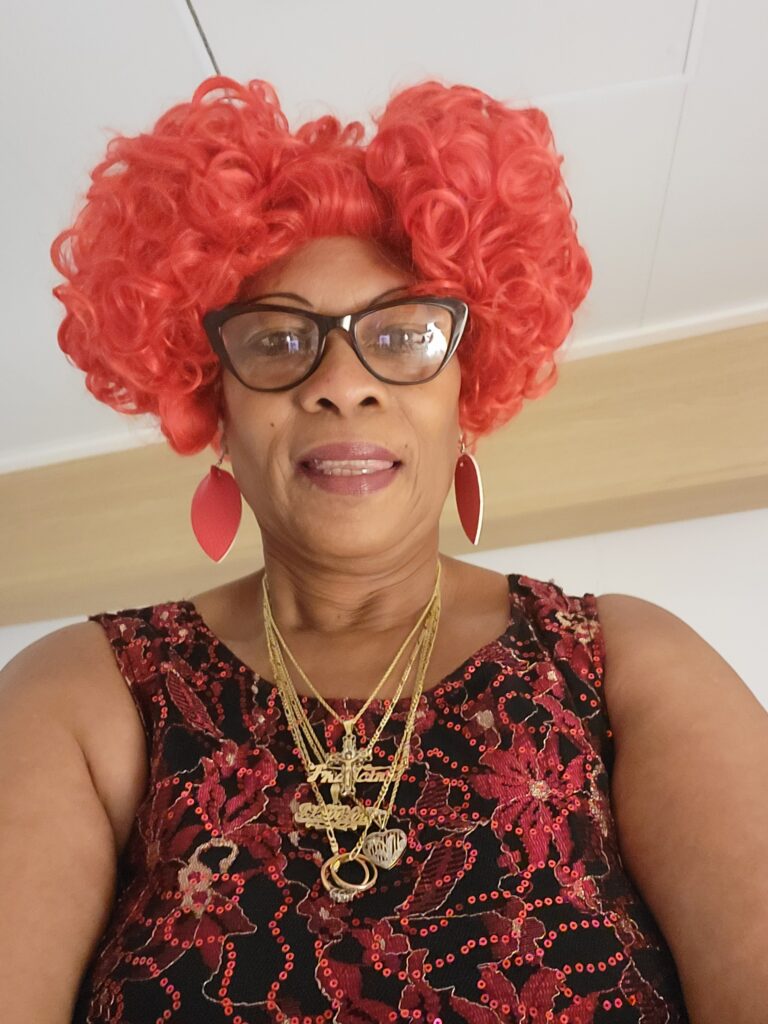



Thank you to Abbvie, Genmab, and Karyopharm for their support of our patient education program! The Patient Story retains full editorial control over all content.
This interview has been edited for clarity and length. This is not medical advice. Please consult with your healthcare provider for treatment decisions.
I’m enjoying life.
You know, God has given me another chance and the opportunities afforded me not only enable me to use my voice, but also to enjoy life.
And that’s exactly what I’m doing.
Introduction
My name is Francina. I’m a breast cancer survivor. I am a mother of two, a daughter and a son and a Nana of 4. 2 boys and 2 girls. I am one who loves to travel. I love going on cruises. And I also love spending time with my family and friends.
I’m also an advocate with the American Cancer Society Cancer Action Network, and also I’m with Sister to Sister Alliance, a support group. We go out into the communities and events like health fairs to empower, to equip, and to enlighten men and women about cancer.
I’m enjoying life. You know, God has given me another chance and the opportunities afforded me enable me not only to use my voice, but also to enjoy life. And that’s exactly what I’m doing.
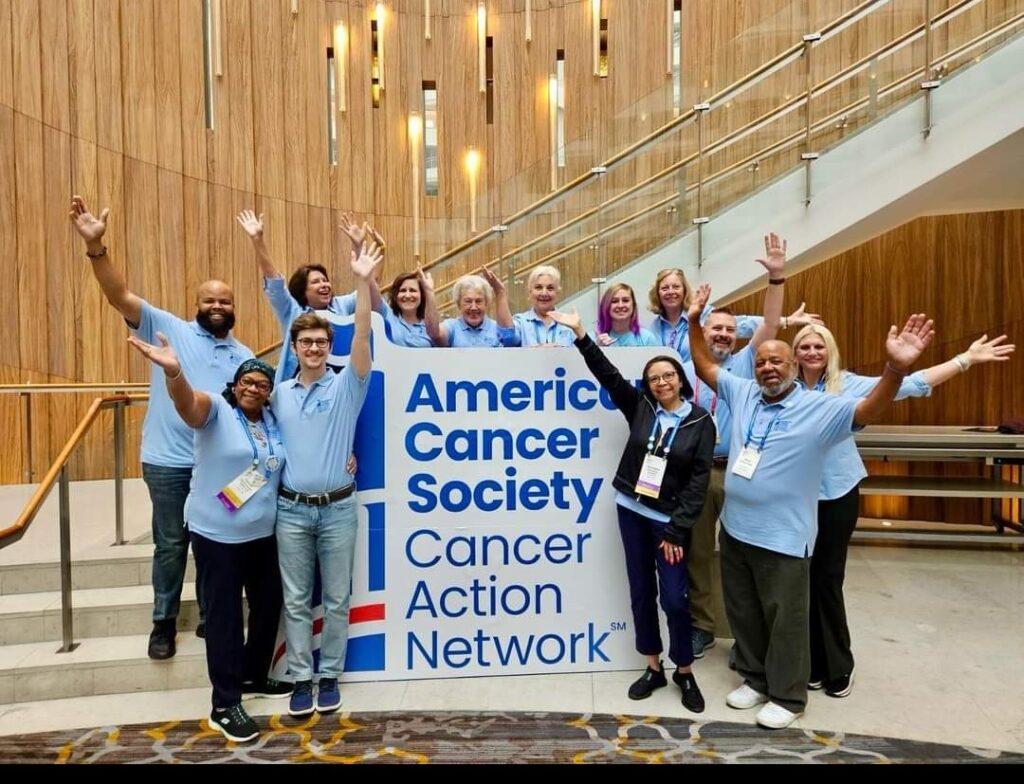
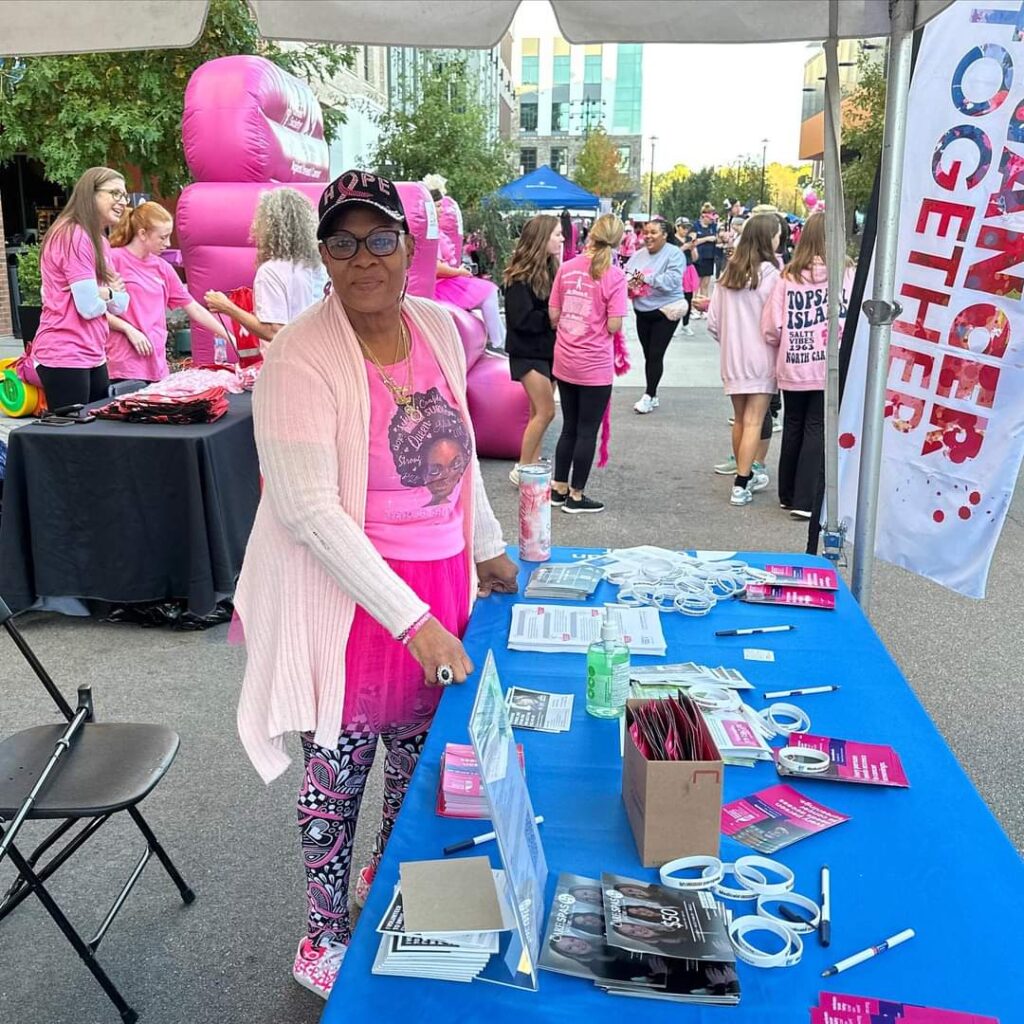
Pre-diagnosis
Initial Symptoms
Well, I didn’t experience any symptoms. It was my annual routine mammogram, and maybe about a few days, maybe a week later, I got a phone call from my doctor.
They needed to do another mammogram and also ultrasound because they had seen a mass.
They wasn’t really sure what it was, but they were concerned.
Diagnosis
So I went and I got my mammogram done. I got my ultrasound done, and I was on my way to the gym.
As soon as I get to the gym, I get a phone call from my doctor that the mass was cancerous.
And she said, I’m going to set you up with other doctors, you pick what you want and go from there.
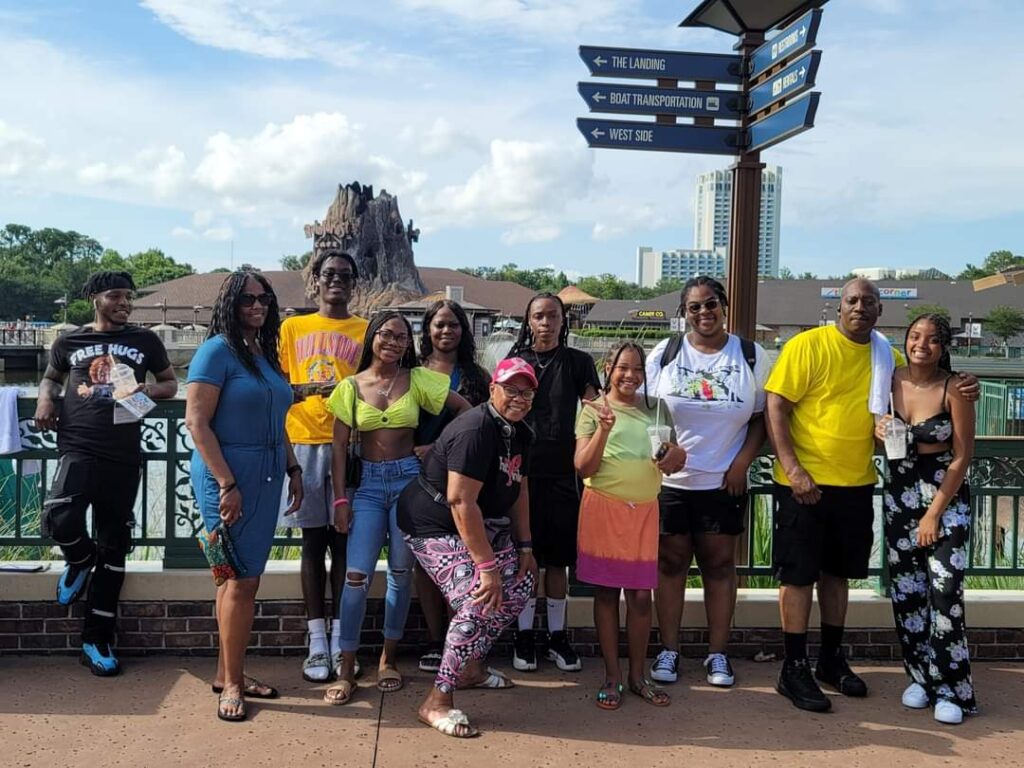
… you don’t hear everything that’s being said because you’re still trying to figure out them 3 words. “I have cancer.”
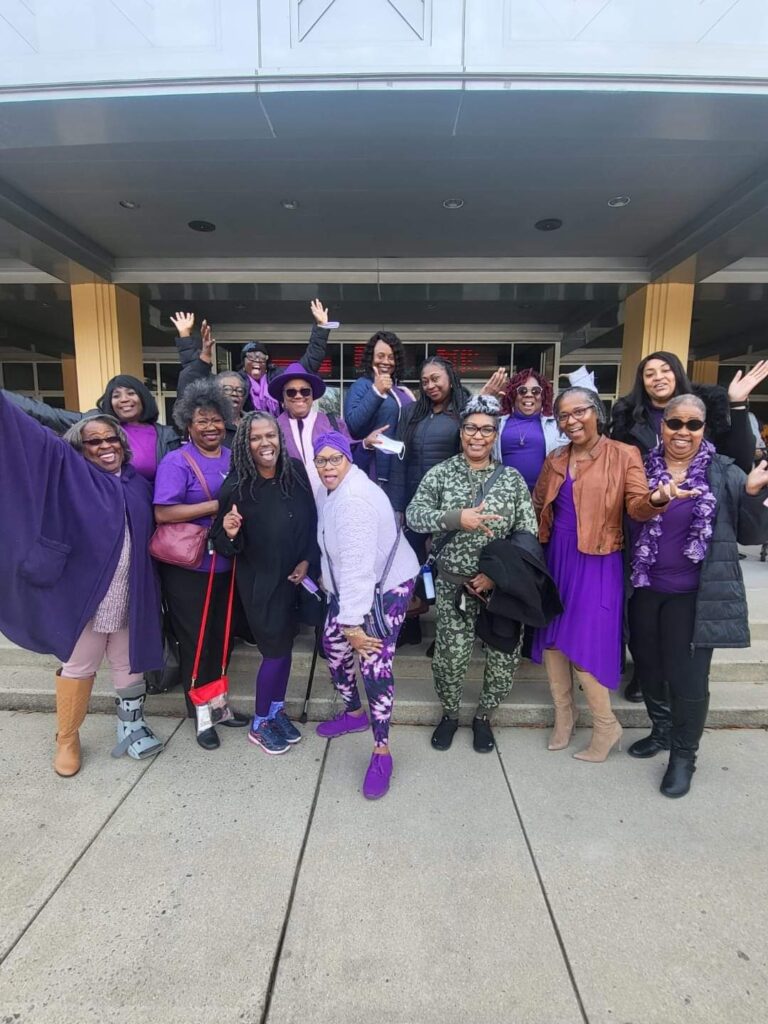
Reaction to the Diagnosis
And so I’m sitting in my car and so I call my pastor and I call her aunt.
And after that I said, you know what, God? Because I never questioned Him. I never asked Him why. I said, If I’m going to carry this, it’s going to be to Your glory.
I said, I’m not going to call my children yet because I know they’re going to have many questions. So let me go, wait and see and talk to my doctor, you know, get information so that I can share with them.
My concern was having to go home and tell my husband. So I went into the gym and I worked out. I went home and my husband was in the bedroom, and I went and told him, and immediately it was negativity. You know, you go there thinking the worst. And so I had to throw my hand up and said, I don’t receive that. And I walked out the room. And so it was a process.
I had a friend that I went to talk to. I used to take care of her son for 2 and a half years, and he had passed away. So I went to her, you know, and let her know what was going on. And she’s a godsend.
I thought that her son was my reason. No, it was her because she went with me through my whole cancer journey from day 1: treatments, surgery, changing my bandages. I mean, the whole bit. And even took notes that I didn’t even know she had taken.
Because, you know, when you go to see your doctor and they tell you that you have cancer, you know, your mind is all over the place. And you don’t hear everything that’s being said because you’re still trying to figure out them 3 words: I have cancer.
Treatment
Options
So my surgeon was very compassionate. He explained everything to me until I understood. He gave me options.
Then he said, you go home and you pray about it, and you come back and let me know what your decision is.
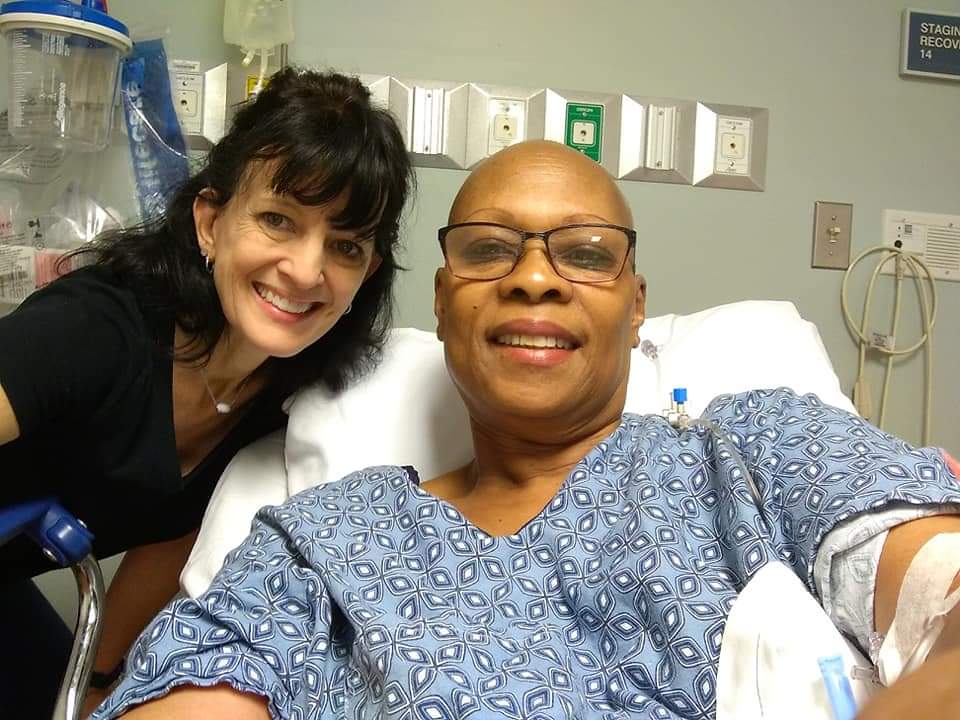
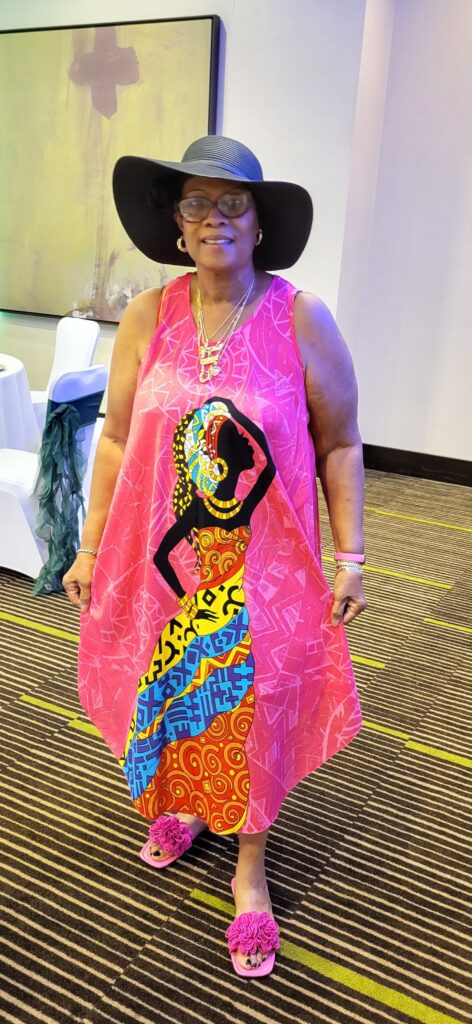
Lumpectomy and biopsy
So I elected to have a lumpectomy done.
And in the process of having the lumpectomy done they found in my sentinel nodes that I had 3 cancerous cells. That means it was outside of the mass.
And so 2 weeks later, I had to have another surgery where they had to go into my armpit. And you have 3 tiers where they took out 2 tiers of cancers.
And it was clear. Clear margin. So the cancer had not spread. So that was a blessing.
So then I had to have a biopsy done so they would know what type of cancer I had.
Chemotherapy and radiation
So in the process of finding out what type of cancer I had, I was able to get a treatment that was tailor-made for my specific cancer. So I had the first round.
I had 4 rounds of chemo every 2 weeks, and then I had to have 12 rounds of another chemo.
The first chemo was doxorubicin, what we call Red Devil. That’s really a powerful, potent treatment.
And then I had paclitaxel, which was for 3 months.
After that, I had either 32 or 33 rounds of radiation.
And from there I was cancer-free. That was 6 and a half years ago.
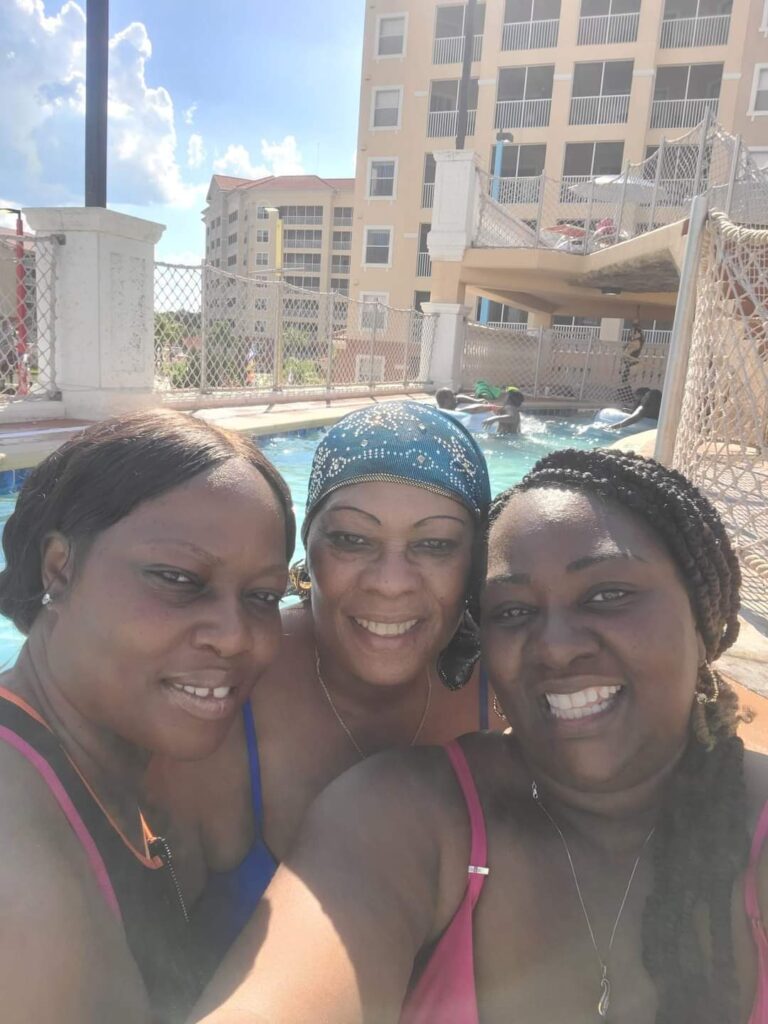
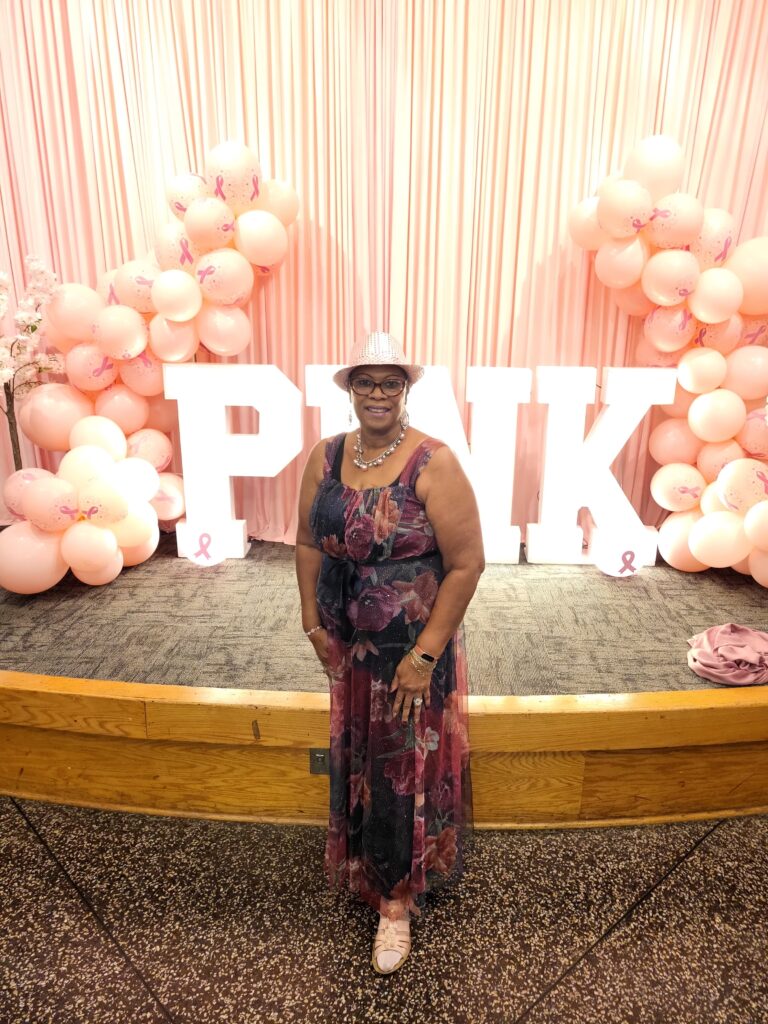
Being Cancer-Free
And it was due to biomarker testing that at the time I did not know I had it done. I just found out the early part of this year. And it was that that contributed to the type of treatment that I needed for my specific cancer, which worked.
And like I said, to God be all the glory because I am cancer-free. I am healed.
And the moment when the doctor pulled me in and said, hey, your scans are clear. Oh, I mean, I was ecstatic, but I already knew because I had a conversation with God, you know, and he gave me 3 words as well. And his 3 words was: I got you. And when God said he got you, he got you.
So I never was stressed or worried about my cancer journey at all.
“I had people”
You know, everybody says something different, but it was just the stress mentally, you know, physically and emotionally of going through and the challenges that I had because of it.
I had to stop working, I was no longer able to work. And so in the process, I exhausted my savings. And so I had no health, no health care.
And so I applied for assistance, but I didn’t qualify, and I had no income.
But I had people.
My social worker was awesome. And she connected me to organizations as well as my niece, because I had a sister that passed away from breast cancer in 2015. So she wasn’t as fortunate.
So I used my voice on behalf of her as well as those that are next to me, but also coming behind me.
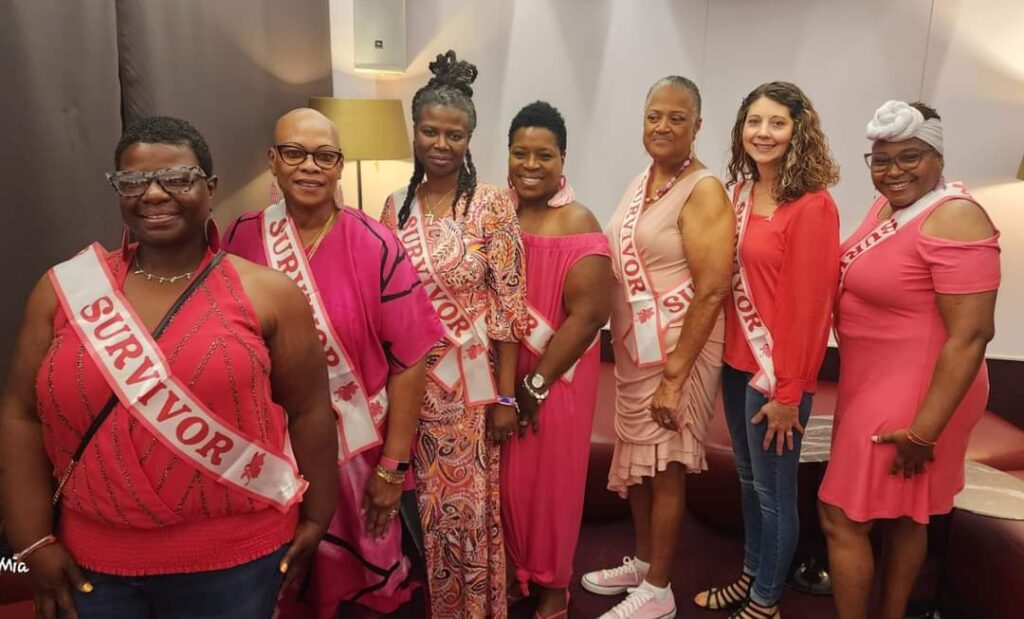
Advice Francina Wants to Share
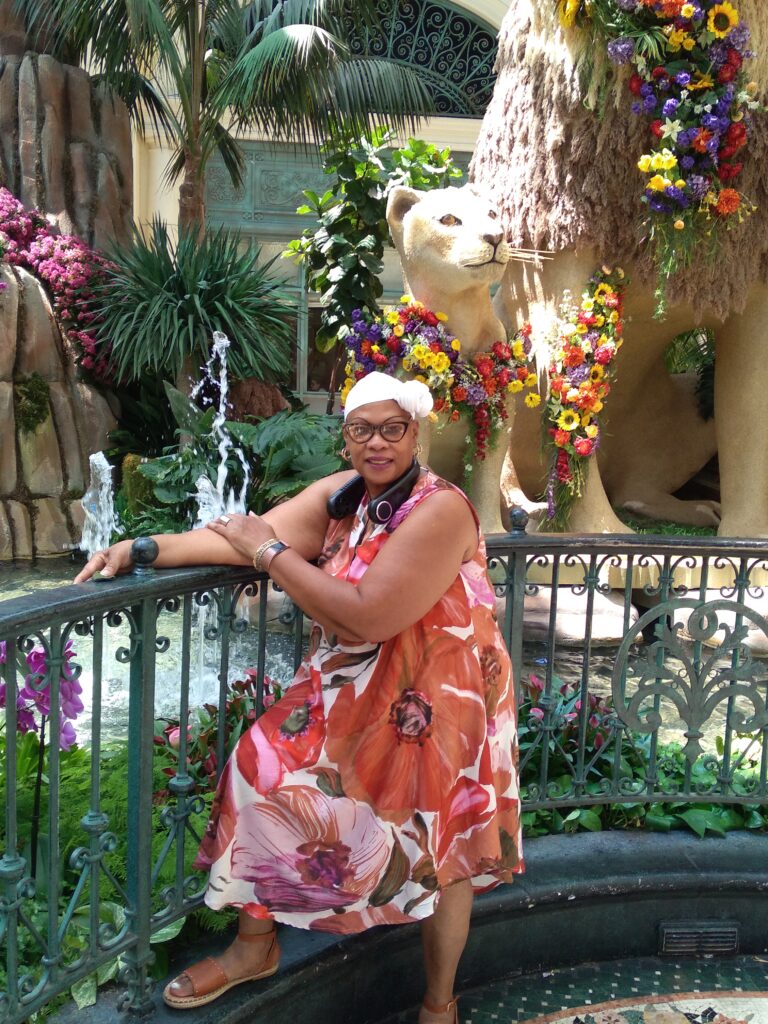
Get tested
So based on my experience, I now advocate testing.
You know, we have to advocate. We have to stop being silent, being quiet, and to let people know cancer does not have to be a death sentence.
Early detection is key. And so, you know, you want to make a point of people to go ahead and get their screenings done. And those that are not old enough to have mammograms to do self-breast exams monthly.
So I’m about educating and giving information, you know, sharing my story, my journey so that I can help others along the way.
And my advocacy has also extended to me urging my daughter to get tested too. And she does get tested, every 6 months. And I also have a sister on my father’s side who also gets tested.
My niece also gets tested because it was her mother that passed away, and I’m her aunt. So, you know, you got to look at that connection. So they all are proactive in getting their screenings. They get MRIs and do self-breast exams as well. I have 2 granddaughters I’m trying to teach about doing self-breast checks.
When we go to health fairs, there are a lot of young adults that are not old enough to get mammograms, don’t know how to do self-breast exams, don’t even know about it. So I’ve asked them, you know, when you go get your physicals, do you talk to your physician? They say, no.
I said, when you go, you ask them to not only perform it, but to show you how to do it yourself, because a lot of times people find those lumps themselves. Also, they’ll be the first to see a change in their body.
So they need to know what to look for. So we like to educate and give information so they are aware.
Link with support groups
Connecting with support groups helped, surrounding myself with positive people. And also learning from them about people who beat cancer. Not just seeing the success, but gathering information from them.
But it was also inspiring to see patients who are now 5 years, 10 years, 20 years cancer free. You know, that was the stuff that gave me something to push forward to.
That can help you through your journey, because there are a lot of people that have already been through what we’re going through so they can help us.
You know, they can be an encouragement and inspiration to us and also be there to support us.
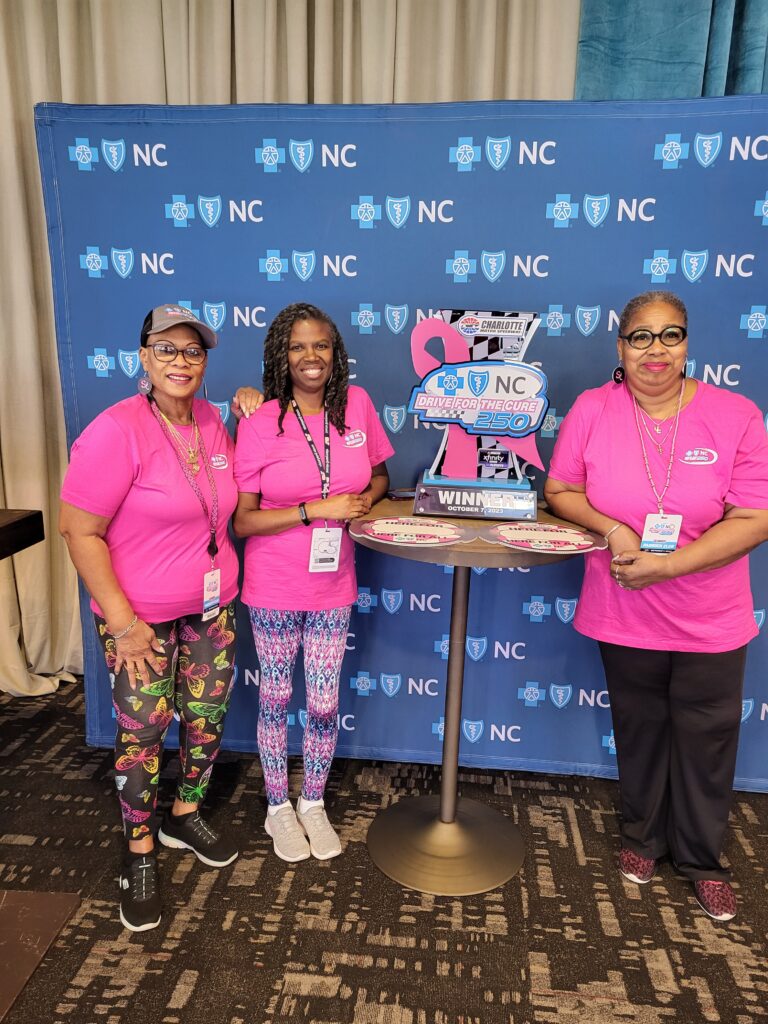
Cancer doesn’t have me.
I’m going to be in control.
It’s not going to take me.
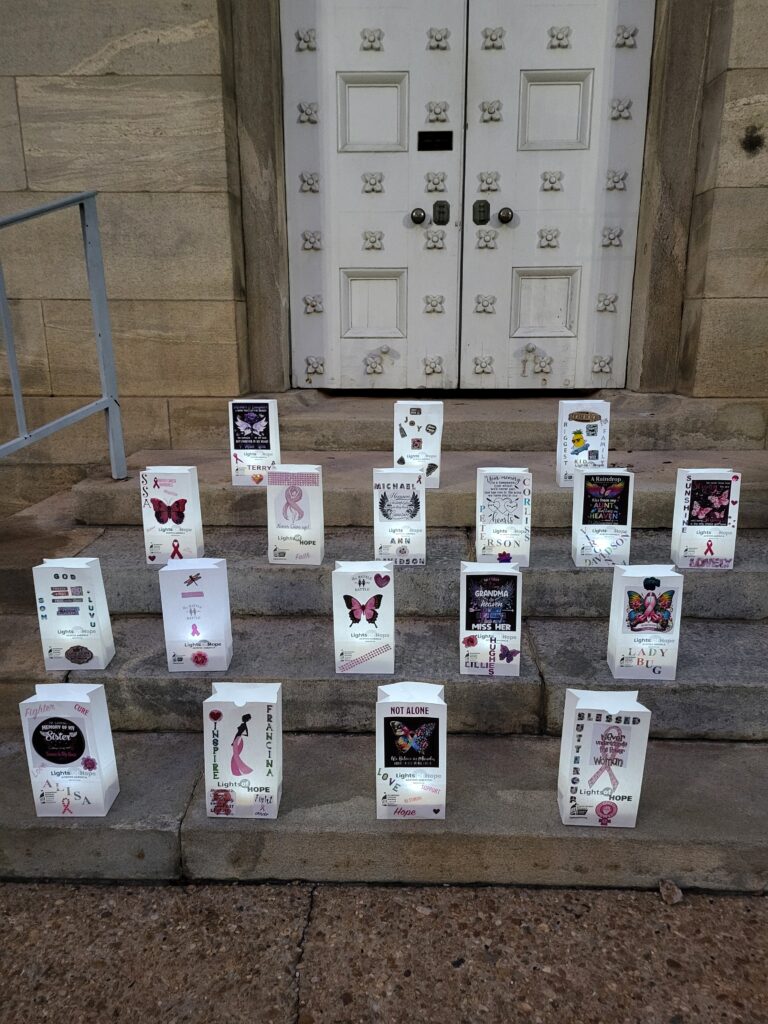
Develop a positive mindset
And also having a positive mindset was so important.
Cancer doesn’t have me. I’m going to be in control. It’s not going to take me.
I’m going to enjoy my life, you know, and do some of the things that maybe I wouldn’t have normally do.
But, you know, just to be an inspiration and encouragement to other people that listen, you can fight this, you can beat this, you can overcome this. You can still have quality of life.
Put your mind to do the things that you want to do, and surround yourself with positive people. Get connected to support groups.
Lean on family and friends
It was so amazing to be supported by my church family, their prayers, having them rally around you and cheer you on.
Plus the support from my family was so heartening. Because when I did finally tell my children, my daughter looked at me. Mom, she said, you know, you’re a strong woman, you’re going to beat this.
My son wanted to run and come to his mama. You know, but they all know that their mama is a fighter.
I’m not one to give up. I’m not one to quit. So I’m going to push. I’m going to press.
But my daughter, every time I look around, she was leaving Maryland, coming to see about her mama. If I didn’t sound right on the phone, she was there.
So, like I said, my family means a lot, because they see me doing my journey. But it also helps them too, as we’re creating memories and also leaving legacies that they can follow and continue with.
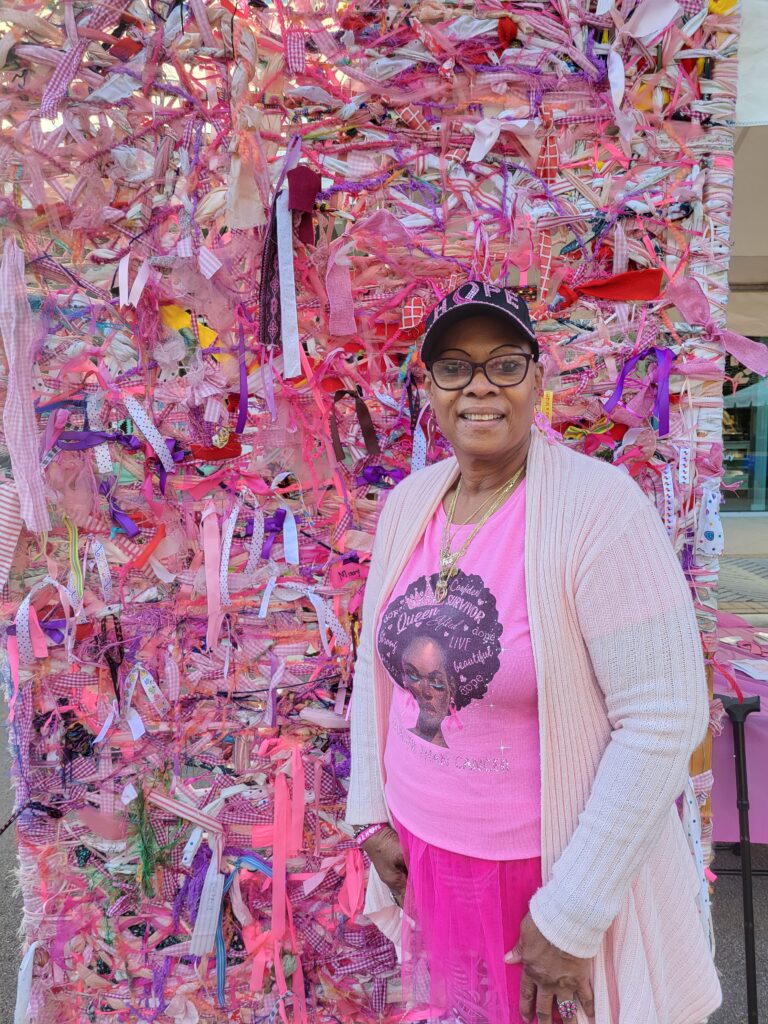

Be aware of any family history
Another key thing that I tell people is, know your family history.
See, when I was growing up you didn’t ask questions as a child. So now all your matriarchs and the patriarchs are no longer here.
You know, you don’t have the information. So it has to start from me with educating my children and my grandkids.
And I’m seeing me when I’m going through and understanding what I do and why I do it.
So with their support and the support of my friends, you know, I’m I believe I’m making a difference.
Learn about biomarkers and why they matter
I also wanted to talk a little bit about biomarkers and their importance. Basically, they get a sample from your tumor and they test it, you know, and then and it determines the type of cancer that you have.
Well, I’m still learning about biomarker testing, but what it did for me was it was able to target the type of cancer that I had. So a lot of people are not aware that they’ve had it done because, you know, you didn’t hear of it. Even my doctors, they didn’t tell me anything about biomarker testing.
It was my advocacy group that was discussing it because it’s something that we’re trying to get out there trying to talk with our lawmakers. Making that a policy. We’re not there yet. So we’re trying to get petitions and we’re educating, you know, our lawmakers. With personal stories.
That’s something that we could bring to the table when it comes to insurance companies, because right now, a lot of insurance companies will not pay for it because they feel that it’s experimental. But when you got these positive outcomes from people who have had it done to me, you know that makes it makes a difference.
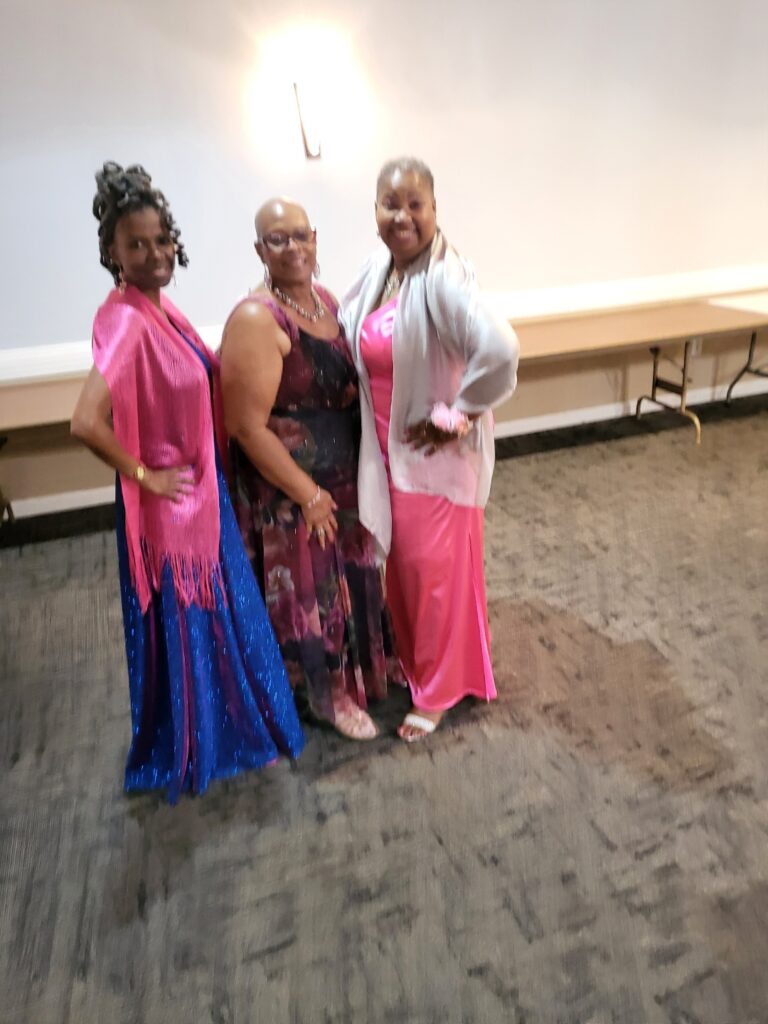
So now they can go back and see, okay, what treatment would be best to combat this type of cancer. And so for me, that’s what they did.
So the regimen that I was on, even though it was hard, it was something that did what it needed to do. And that’s why I am cancer-free because it was targeted for my specific cancer.
It’s cost effective because, if you really don’t know what you what you’re dealing with, you don’t really know what type of treatment is best for that. You’re trying different regimens and it puts a lot of stress and strain on the patient.
But if you’re a doctor and you know something is targeted that this is going to work for this type of cancer, if you use this type of treatment, this medication, then, okay, you’re saving your patient, but you’re also giving that that person quality of life and also extending their life.
I want everybody to be advocates for themselves.
Because who knows your body better than you do?
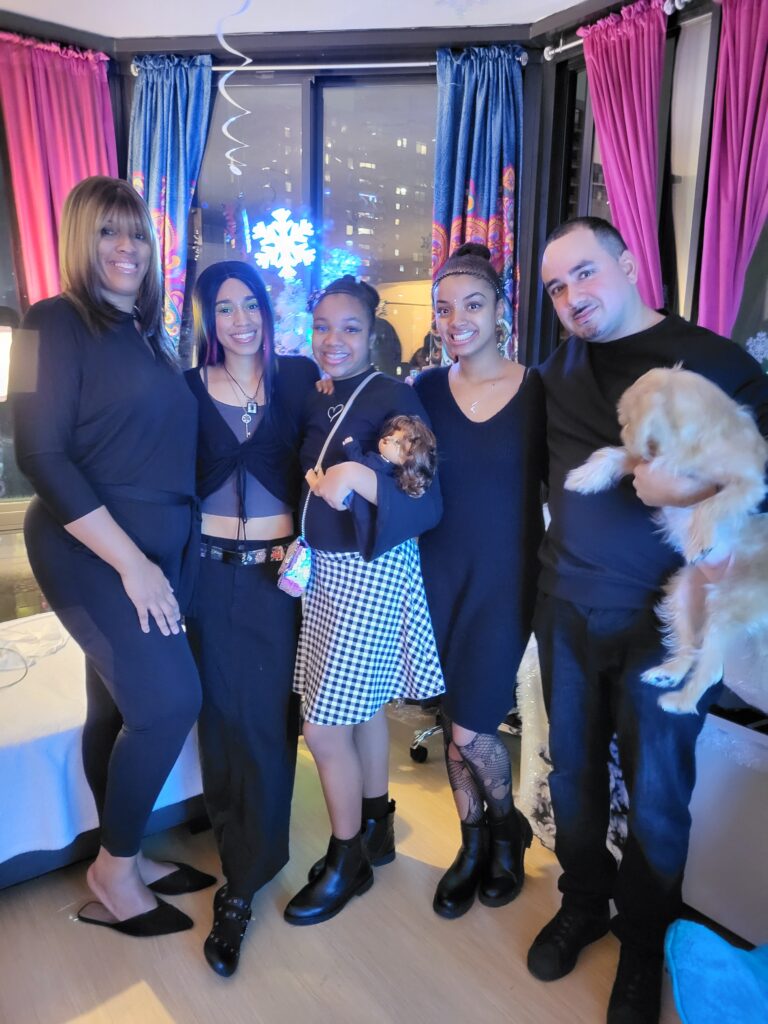
Advocate for others—and yourself
Let me finish by sharing the most important efforts in the work I’m doing with the American Cancer Society when it comes to the black and African American community.
Bringing about awareness, equipping them, empowering them to get out there and to do what they need to do for themselves. Leading by example. Sharing my story with them and letting them know.
Again, cancer is not a death sentence. Early detection is key. We must get out there and do our screenings, and also do our monthly breast exams, and not allow fear to keep you from getting the care.
Because everybody deserves to have some type of quality care.
I want everybody to be advocates for themselves. Because who knows your body better than you do?
And sometimes you go to doctors and you tell them things are going on and they push you off. And my thing is, if you go to a doctor and they cannot do what you’re asking or requiring them to do, go somewhere else where somebody will.
Because there are people that have been diagnosed and they’re already stage 3. Stage 4. Whereas if they would have had it done initially, they may have caught it earlier.
So we have to also be advocates for ourselves. We deserve to have care. We deserve to be listened to and to be understood.
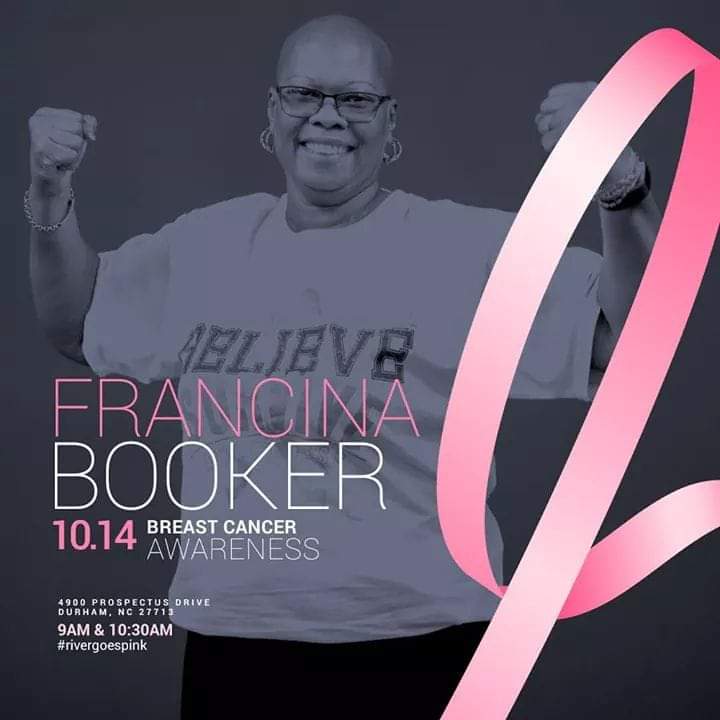



Special thanks again to Abbvie, Genmab, and Karyopharm for their support of our patient education program! The Patient Story retains full editorial control over all content.

Inspired by Francina's story?
Share your story, too!
Related Cancer Stories
Breast Cancer Biomarker Stories
Symptom: Sunken in nipple of right breast
Treatments: Double mastectomy, chemotherapy (AC-T), radiation, hormone therapy (tamoxifen, Zoladex)
Stephanie J., Triple-Negative Breast Cancer, Stage 3, Grade 3, IDC, BRCA1+
Symptom: Lump in left breast
Treatments: Chemotherapy, surgery (double mastectomy, oophorectomy, hysterectomy, breast reconstruction)
Stefanie H., IDC, Stage 3, Triple-Positive
Symptom: Lump in the breast
Treatments: Chemotherapy, surgery (lumpectomy), radiation
Symptoms: Shortness of breath, lump under armpit, not feeling herself
Treatments: Chemotherapy, Transfusions
More Breast Cancer Stories
Amelia L., IDC, Stage 1, ER/PR+, HER2-
Symptom: Lump found during self breast exam
Treatments: TC chemotherapy; lumpectomy, double mastectomy, reconstruction; Tamoxifen
Rachel Y., IDC, Stage 1B
Symptoms: None; caught by delayed mammogram
Treatments: Double mastectomy, neoadjuvant chemotherapy, hormone therapy Tamoxifen
Rach D., IDC, Stage 2, Triple Positive
Symptom: Lump in right breast
Treatments: Neoadjuvant chemotherapy, double mastectomy, targeted therapy, hormone therapy
Caitlin J., IDC, Stage 2B, ER/PR+
Symptom: Lump found on breast
Treatments: Lumpectomy, AC/T chemotherapy, radiation, hormone therapy (Lupron & Anastrozole)
Joy R., IDC, Stage 2, Triple Negative
Symptom: Lump in breast
Treatments: Chemotherapy, double mastectomy, hysterectomy
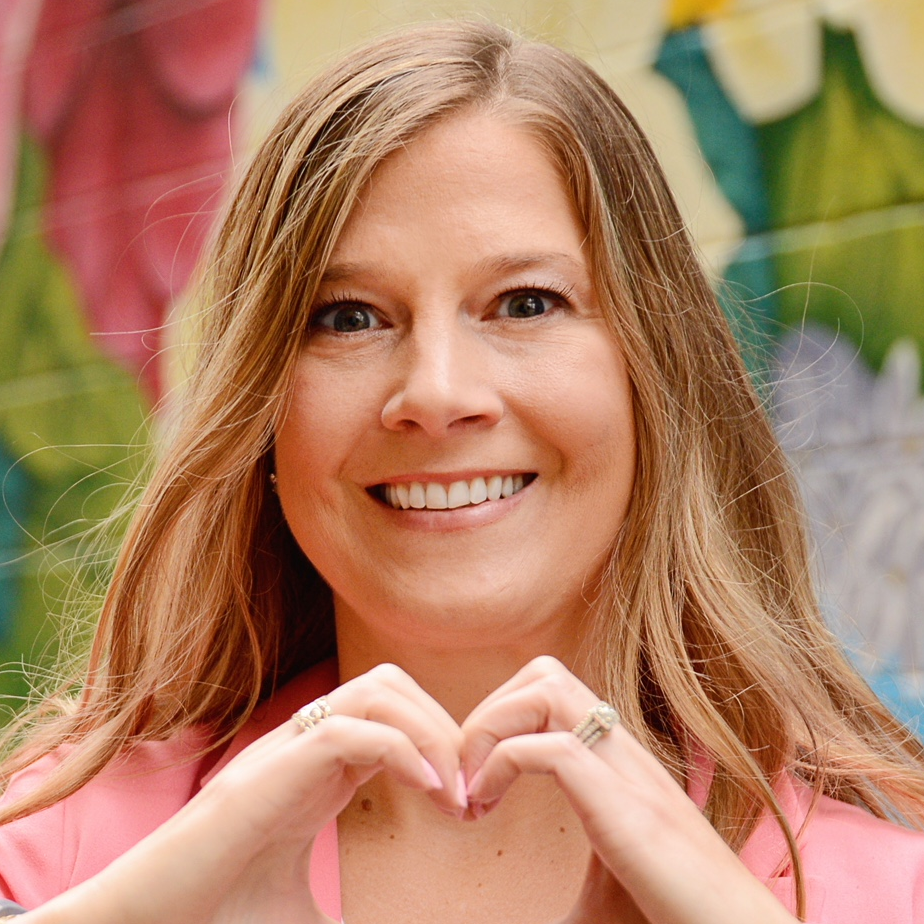
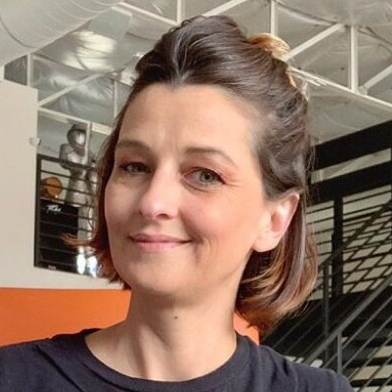
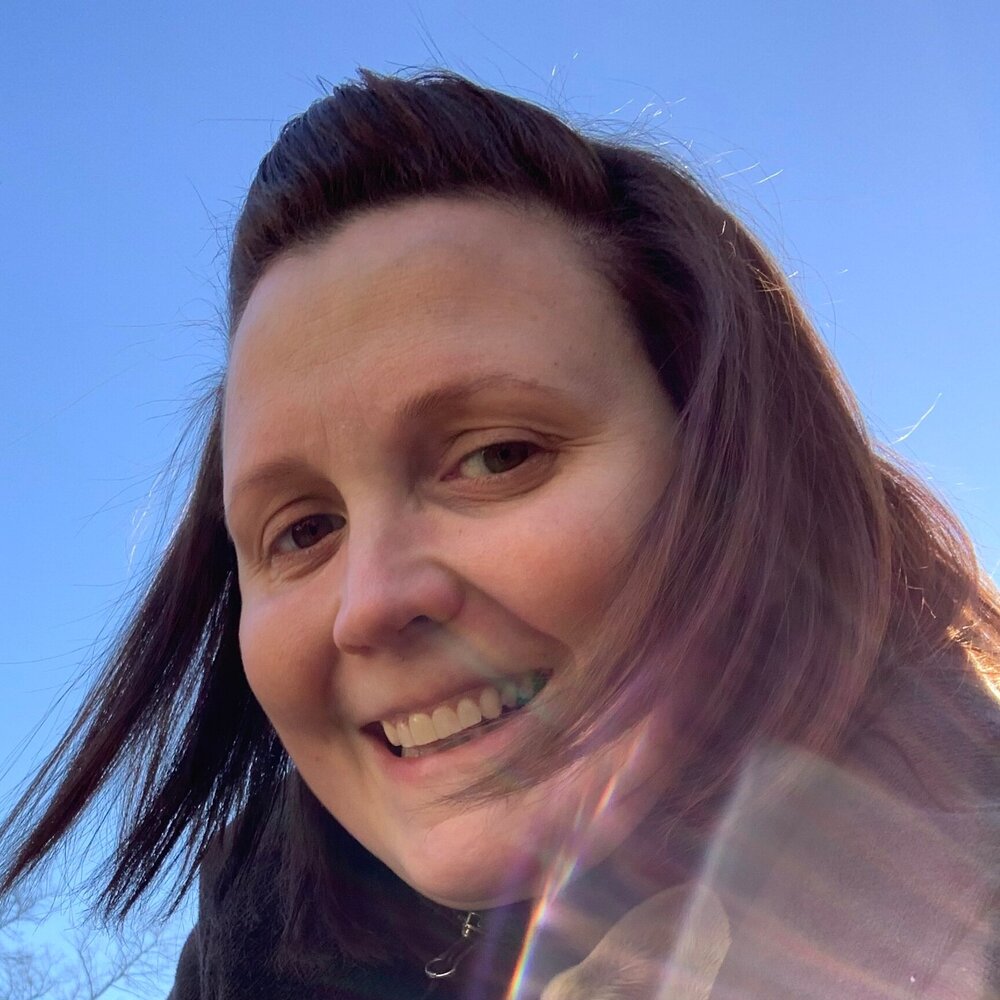
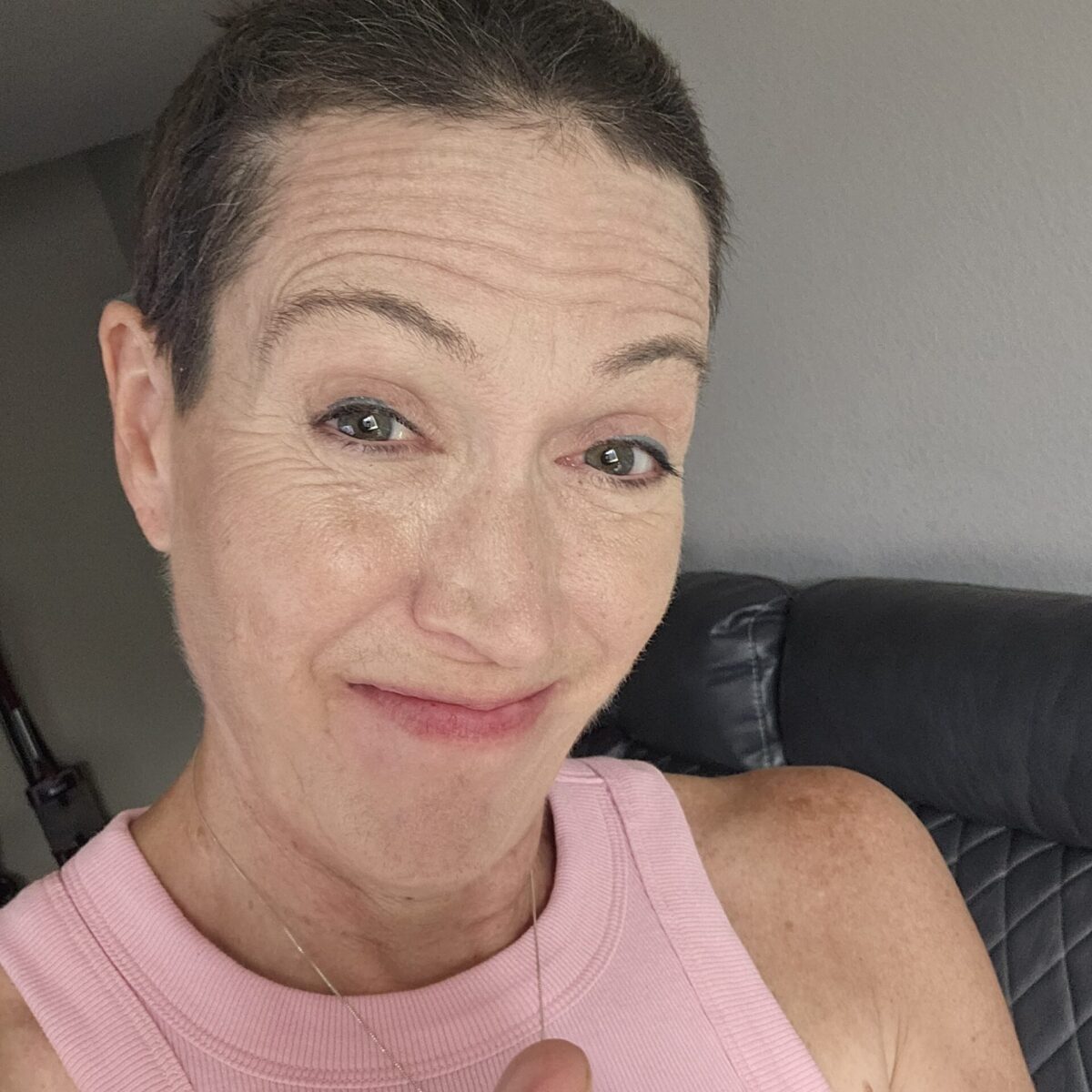
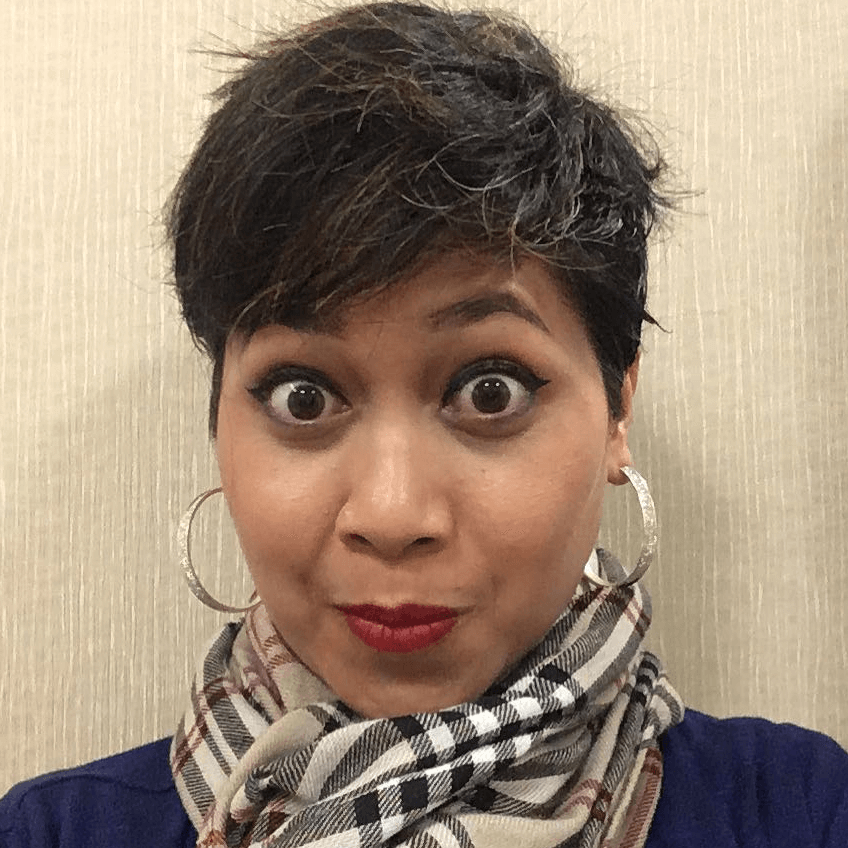
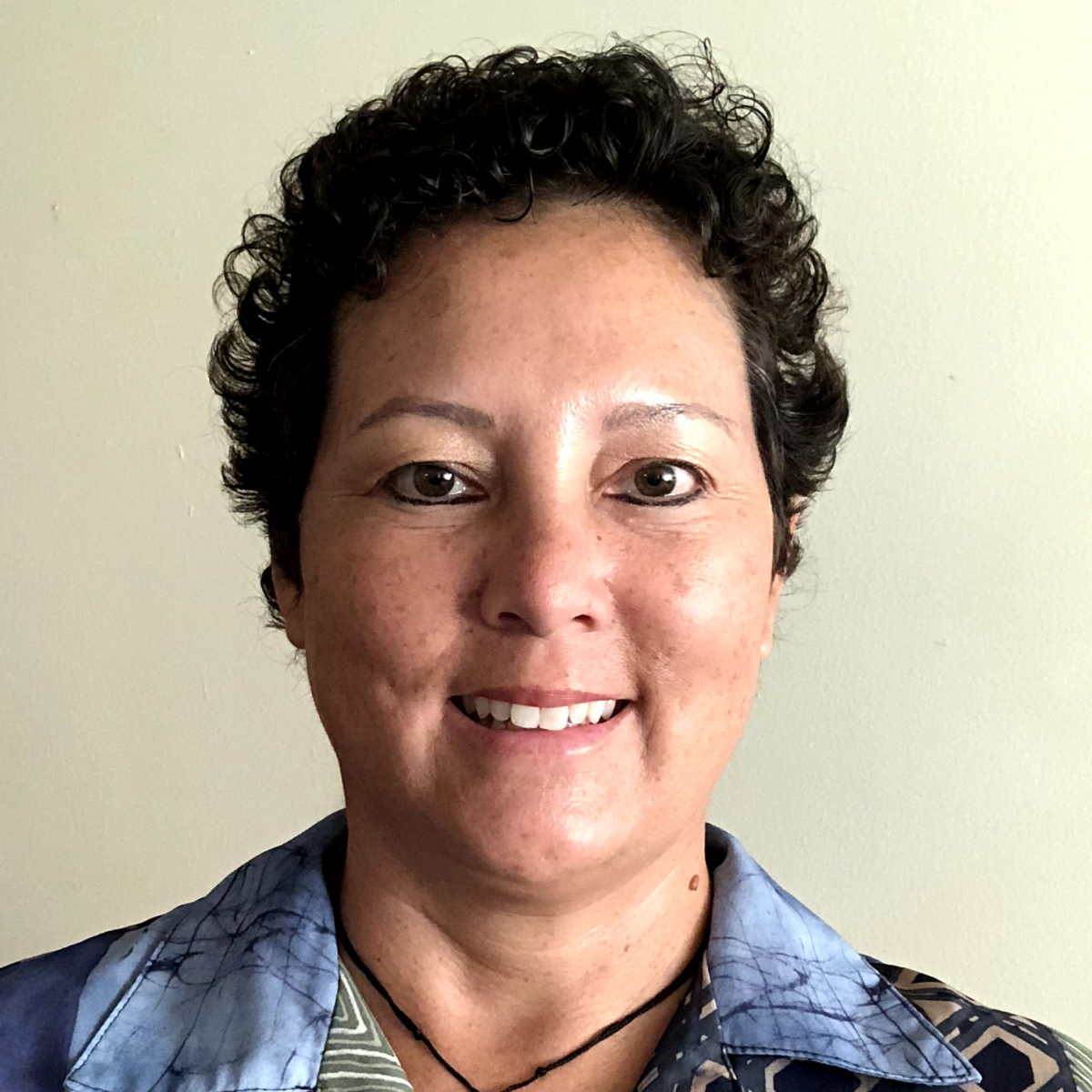
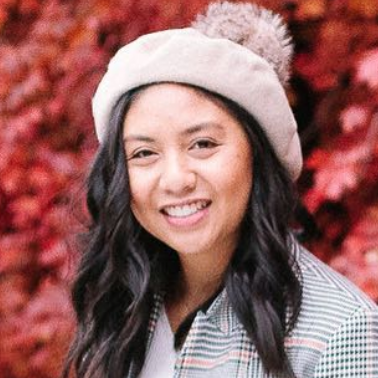
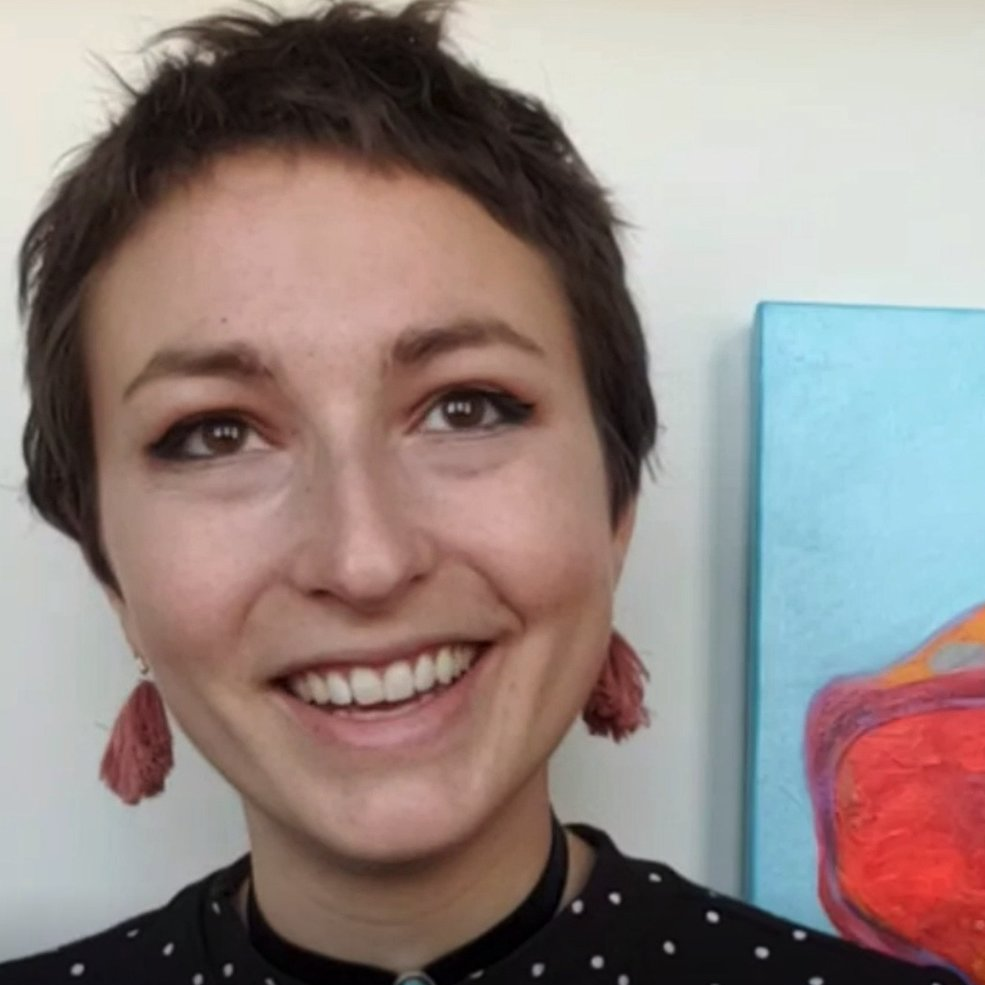
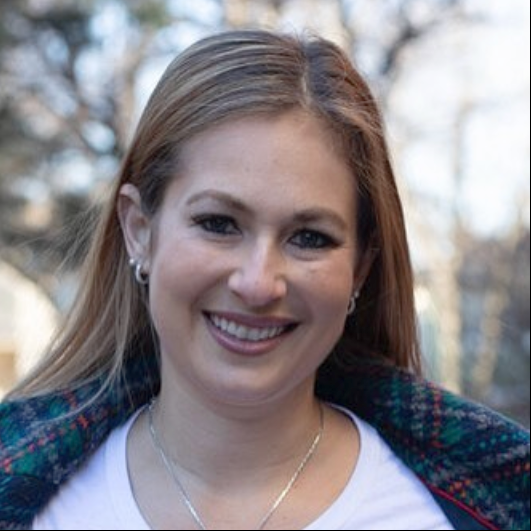
One reply on “Francina’s Stage 2B Breast Cancer Story”
Francine is a very very strong woman. Helping so many women. She is an inspiration to us all.